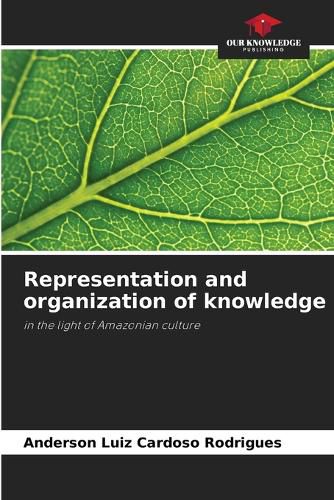Readings Newsletter
Become a Readings Member to make your shopping experience even easier.
Sign in or sign up for free!
You’re not far away from qualifying for FREE standard shipping within Australia
You’ve qualified for FREE standard shipping within Australia
The cart is loading…






This title is printed to order. This book may have been self-published. If so, we cannot guarantee the quality of the content. In the main most books will have gone through the editing process however some may not. We therefore suggest that you be aware of this before ordering this book. If in doubt check either the author or publisher’s details as we are unable to accept any returns unless they are faulty. Please contact us if you have any questions.
This book explores and analyses the 'Amazonian culture' domain in the context of information organization and representation. It presents concepts of culture, highlighting schools of thought with the aim of supporting reflections on the domain. The supporting theoretical framework is centered on Ranganathan's Faceted Classification Theory and CRG (London)'s Integrative Levels Theory, as a theoretical-methodological basis for outlining the classificatory structure aimed at building documentary languages in the domain studied. Theories relevant to the nature of this study are also presented, such as Cognitivism, Polyrepresentation and Hjorland's Domain Analysis. The conceptual selection was based on popular Amazonian terminological vocabularies. The analysis of word etymologies indicated the influence of European, African, Asian and American cultures on Amazonian language. The results of the analysis revealed the feasibility of developing a working methodology to outline a classification structure to represent 'Amazonian culture' in its basic roots as a basis for building knowledge organization systems.
$9.00 standard shipping within Australia
FREE standard shipping within Australia for orders over $100.00
Express & International shipping calculated at checkout
This title is printed to order. This book may have been self-published. If so, we cannot guarantee the quality of the content. In the main most books will have gone through the editing process however some may not. We therefore suggest that you be aware of this before ordering this book. If in doubt check either the author or publisher’s details as we are unable to accept any returns unless they are faulty. Please contact us if you have any questions.
This book explores and analyses the 'Amazonian culture' domain in the context of information organization and representation. It presents concepts of culture, highlighting schools of thought with the aim of supporting reflections on the domain. The supporting theoretical framework is centered on Ranganathan's Faceted Classification Theory and CRG (London)'s Integrative Levels Theory, as a theoretical-methodological basis for outlining the classificatory structure aimed at building documentary languages in the domain studied. Theories relevant to the nature of this study are also presented, such as Cognitivism, Polyrepresentation and Hjorland's Domain Analysis. The conceptual selection was based on popular Amazonian terminological vocabularies. The analysis of word etymologies indicated the influence of European, African, Asian and American cultures on Amazonian language. The results of the analysis revealed the feasibility of developing a working methodology to outline a classification structure to represent 'Amazonian culture' in its basic roots as a basis for building knowledge organization systems.